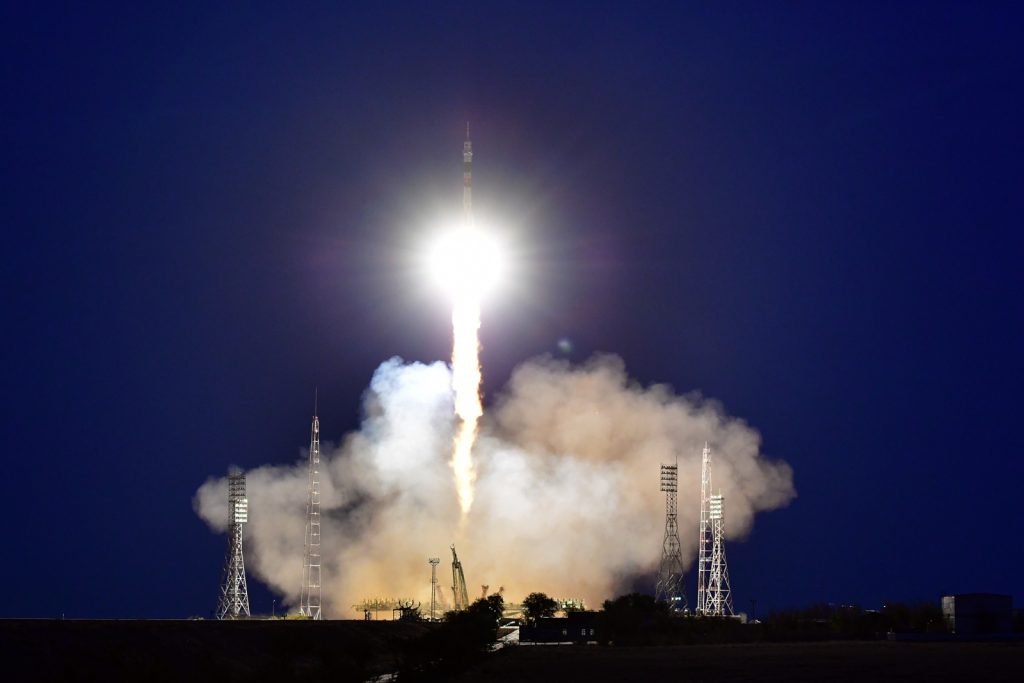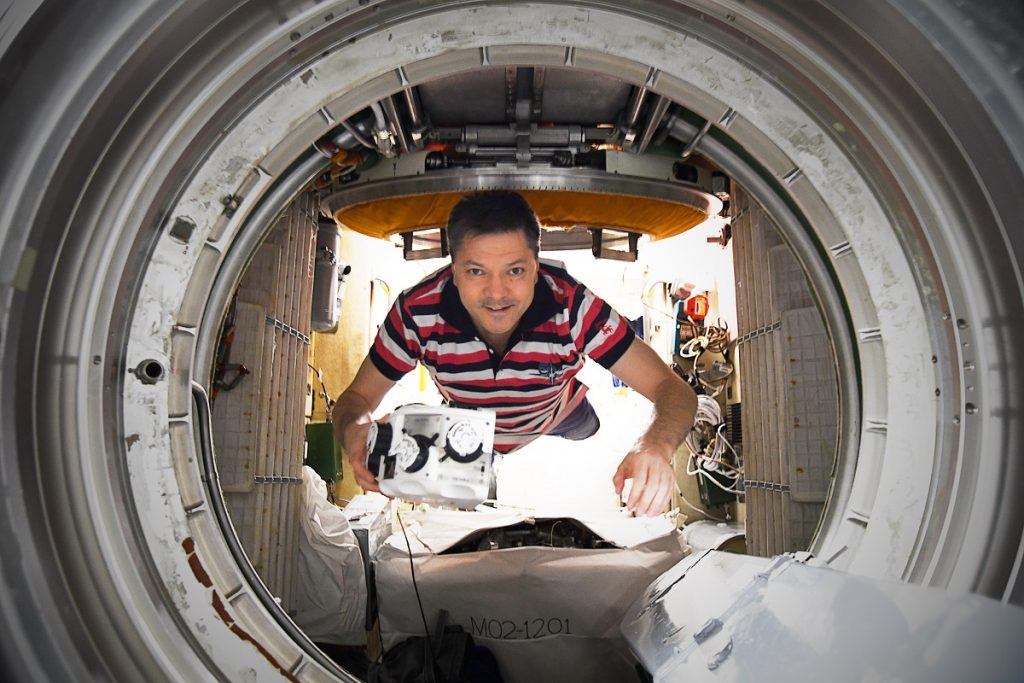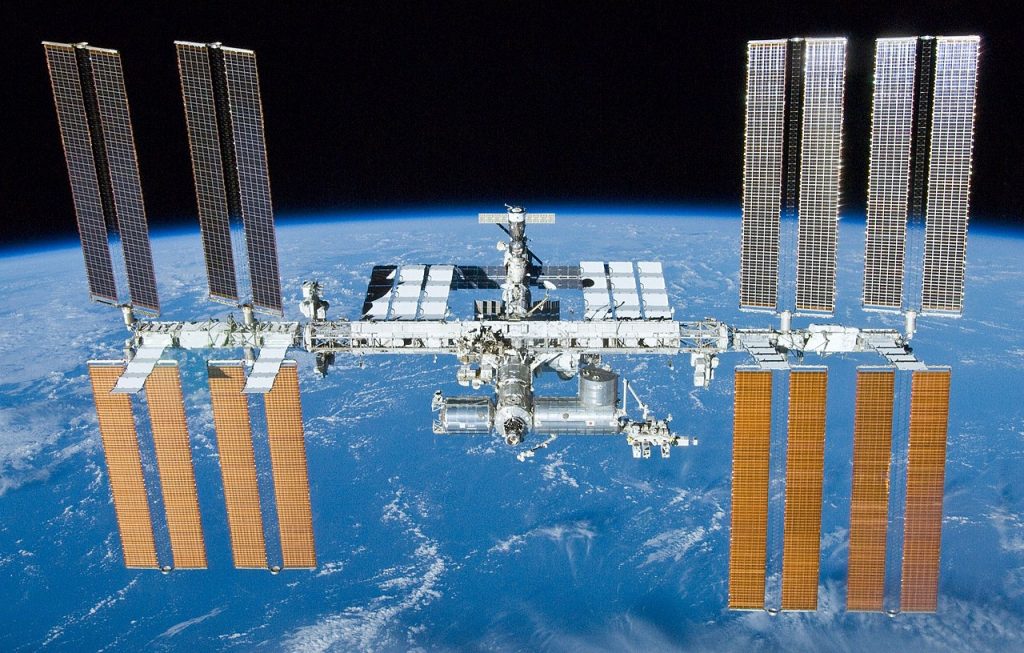Where’s the beef? Looks like it’s in space.
Israeli clean meat startup Aleph Farms, which unveiled the world’s first slaughter-free steak grown from animal cells late last year, says it has conducted a most unusual experiment to make its meat product on the International Space Station (ISS) some 248 miles (339 km) away. The ISS is a low-orbit space station that serves as a microgravity and space environment research laboratory between five participating space agencies: NASA, Roscosmos (Russia), JAXA (Japan), ESA (Europe), and CSA (Canada).
SEE ALSO: Israel’s Aleph Farms Unveils ‘World’s First’ Lab-Grown, Slaughter-Free Steak
Aleph Farms said the project was a bid to demonstrate its “mission to provide sustainable food security on Earth, and beyond, by producing meat regardless [of] availability of land and local water resources.”
“In space, we don’t have 10,000 or 15,000 liters (3962.58 gallons) of water available to produce one kilogram (2.205 pounds) of beef,” said Didier Toubia, co-founder and CEO of Aleph Farms, in a statement.
The experiment, he said, “marks a significant first step toward achieving our vision to ensure food security for generations to come, while preserving our natural resources.”

Founded in 2017 by Toubia and Professor Shulamit Levenberg as part of a collaboration between Israeli food tech incubator The Kitchen, and the Technion-Israel Institute of Technology, Aleph Farms says its 3D technology enables it to mimic traditional cuts of beef in both structure and texture. Just without beef’s huge environmental impact, its heavy resource requirements, or its contribution to climate change.
Its method to produce cultivated beef steaks relies on mimicking a natural process of muscle-tissue regeneration occurring inside the cow’s body, but under controlled conditions. The startup says it implements a combination of six unique technologies that allow it to drop the production costs of the meat, including innovative approaches to an animal-free growth medium to nourish the cells, and bioreactors – the tanks in which the tissue grows.
In December, Aleph Farms unveiled the first prototype of lab-grown steak in the world – to much fanfare.

And the next frontier was apparently space.
Sign up for our free weekly newsletter
SubscribeTo conduct the experiment, Aleph Farms teamed up with Russian company 3D Bioprinting Solutions, which develops implementations of 3D bioprinting technologies, and two American companies, Meal Source Technologies and Finless Foods, to carry out the process on September 26. Aboard the Russian segment of the ISS, they used a unique technology of magnetic biofabrication, developed by 3D Bioprinting Solutions, to produce bovine, mummichog and rabbit myoblast/fibroblast constructs provided by Aleph Farms, Finless Foods, and Meal Source Technologies, respectively. All under microgravity conditions.

3D Bioprinting Solutions said in a statement that the joint project lays the groundwork for renewable protein sources for long term manned missions.
Aleksandr Ostrovsky, co-founder of 3D Bioprinting Solutions and Meal Source Technologies said, “We believe that biofabrication of cultured meat in space has several unique advantages such as sustainability, personalization, and biosafety. What is more, creating cultured meat products in space may grant invaluable scientific insights for implementation of this technology on Earth.”
Hailing a “successful proof of concept,” Aleph Farms said the cutting-edge research “in some of the most extreme environments imaginable serves as an essential growth indicator of sustainable food production methods that don’t exacerbate land waste, water waste, and pollution.”
These methods are aimed at feeding a rapidly growing world population predicted to reach 10 billion individuals by 2050, Aleph Farms said, citing a report published last month by the UN’s Intergovernmental Panel on Climate Change, that argued that conventional animal farming methods contributed greatly to climate change, creating “a challenging situation worse and undermining food security.”
“The mission of providing access to high-quality nutrition anytime, anywhere in a sustainable way is an increasing challenge for all humans,” said Jonathan Berger, CEO of The Kitchen.
“On Earth or up above, we count on innovators like Aleph Farms to take the initiative to provide solutions to some of the world’s most pressing problems, such as the climate crisis.”
This achievement, said Toubia, “follows Yuri Gagarin’s success of becoming the first man to journey into outer space, and Neil Armstrong’s 50th anniversary this year, celebrating the moment when the first man walked [in] space.”
Related posts

Editors’ & Readers’ Choice: 10 Favorite NoCamels Articles

Forward Facing: What Does The Future Hold For Israeli High-Tech?

Impact Innovation: Israeli Startups That Could Shape Our Future




Facebook comments